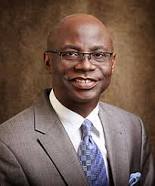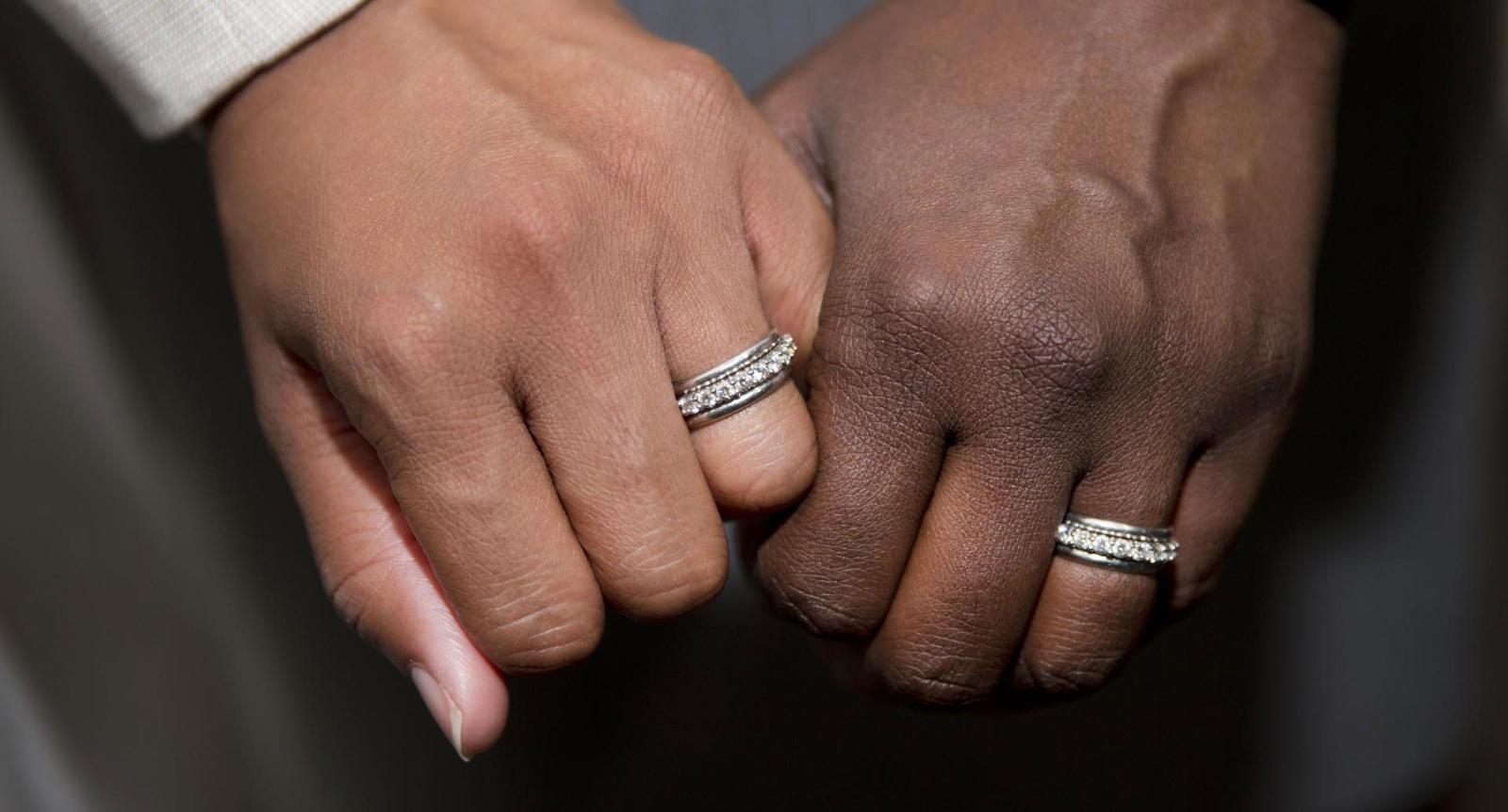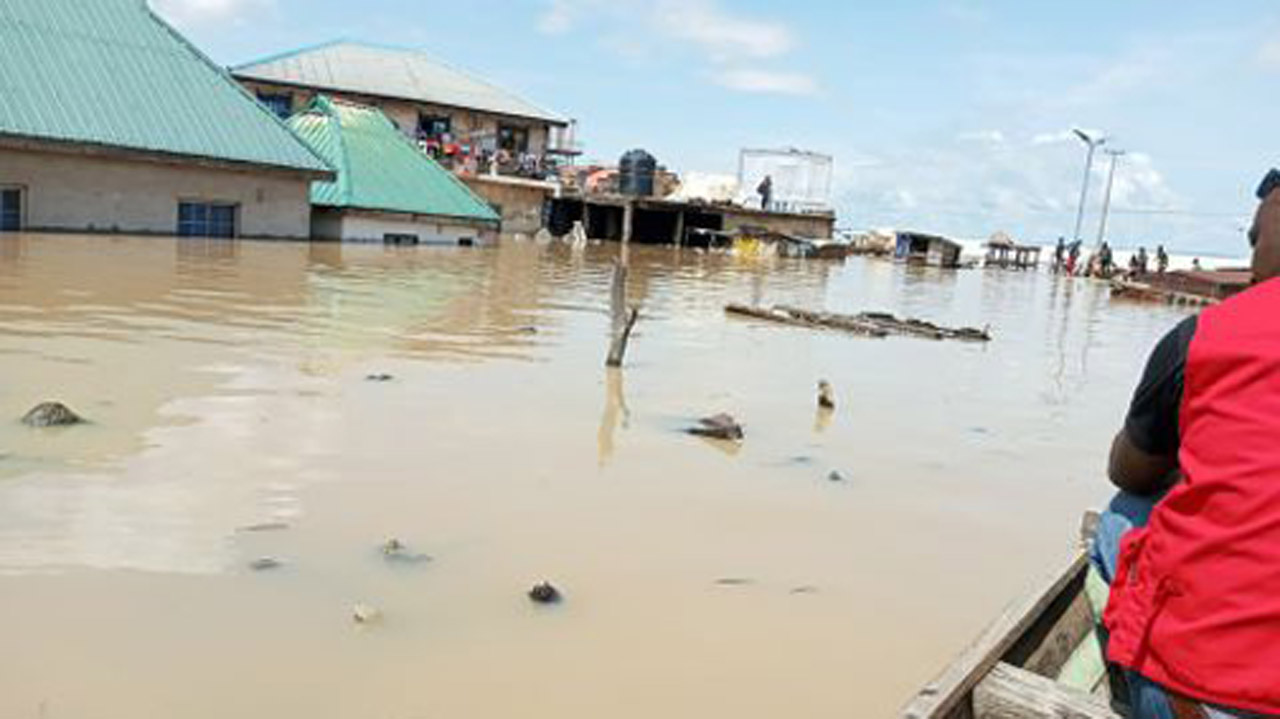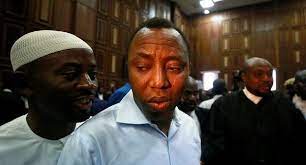OPINION
2023: As Tunde Bakare Unfurls

By Emeka Alex Duru
It did not come to keen observers as surprise that the founding Serving Overseer of the Citadel Global Community Church (CGCC), formerly known as The Latter Rain Assembly, Pastor Tunde Bakare, has joined the crowd of aspirants angling for the All Progressives Congress (APC) presidential ticket for 2023 elections.
He eventually took the gamble on Thursday, May 5, swelling the ranks of those seeking the ticket. Some other aspirants include; Vice President Yemi Osinbajo, ex-Lagos Governor Bola Tinubu, Ebonyi Governor, Dave Umahi, Kogi state Governor, Yahaya Bello, Cross River state Governor, Ben Ayade, Minister of Transportation, Rotimi Amaechi, Minister of Labour and Employment, Chris Ngige, Senators Rochas Okorocha and Ibikunle Amosun, as well as the Minister of State for Education, Emeka Nwajiuba.
Bakare did not come straight in the move. He rather danced and skirted around, massaging some egos and subtly putting down interests he considered could work against his aspiration. At a time, he seemed to be burnishing the image of former Lagos State governor and a major contender for the ticket, Bola Tinubu.
In one other tricky move, the Pastor, had early in April, tactfully portrayed the Igbo as a people to be watched as the presidential race gathers steam.
In a video that went viral, the clergy, took up a quixotic posture, selling the dummy of feeling for the people but carefully throwing them out to be watched, closely. He claimed that part of the reasons why no Igbo would be president of Nigeria is because of a curse placed on them by the late Prime Minister, Abubakar Tafawa Balewa on the night he was killed by mutinous soldiers on January 15, 1966.
The Igbo he alleged, poured alcohol on Balewa and forced him to drink same before killing him – an action that prompted his curse on them. Bakare said he was lifting the curse on the Igbo nation.
He said: “Why should anyone in this country say the Igbo man cannot be president of Nigeria? Are they not Nigerians? I was at Imo and I told them the reason why the Igbo cannot rule Nigeria and I want to remove the curse today.
“Do you know what happened? The day they killed Tafawa Balewa, they removed his turban, poured wine on his head, forced him to drink, and shot him. And why he was being killed, he said, none of your tribe will ever rule Nigeria.
“God has instructed me to break the curse of Tafawa Balewa on the Igbos. I want to break the curse today because this generation of Igbo was not part of those people.
“You cannot overgeneralize. So, on the authority of God’s word. I reverse the curse of Tafawa Balewa over the Igbo generation. Henceforth, the Igbo will have access to the throne-like any other Nigerian.”
The assertions were instantly dismissed as absurd and unfounded. Bakare was born in 1954. He was thus, barely 12 years during the January 15, 1966 coup and could not have known what actually happened at the time. He equally did not disclose the source of his information, thus rendering his claim a fraud or mere attempt at intellectual masturbation.
Besides, at no time had it been established that the soldiers that killed Balewa were Igbo. Documentary evidences have also shown that the putsch was not an exercise by any particular ethnic group.
The interpretation therefore, was that the outing by the cleric, coming close to an election year when many Nigerians of good conscience are agreed that it is the time for the Igbo to have a shot at the presidency, was mischievous.
The suspicion was that what the Pastor did was to incite the entire North where Balewa hailed from and his Muslim brethren across the land against the Igbo.
Selfish interest was not ruled out in the shocking assertion by Bakare. Apart from being a clergy, he is a politician. In 2011, he was the running mate to President Muhammadu Buhari, on the platform of Congress for Progressive Change (CPC). He has not hidden his ambition for the presidency, ever since.
He re-emphasised the point on Thursday while picking the N100 million APC nomination form. Bakare said; “Having been privileged to serve Nigeria in various nation building capacities, I intend to take a step further in the service of our beloved country and of you, her worthy citizens, by running for the Office of the President of the Federal Republic of Nigeria”. He claimed that his aspiration was propelled by the desire to rebuild Nigeria into a nation that works for every Nigerian.
He had earlier in one of his Sunday sermons, claimed that he had divine anointment for the office. He said; “I will succeed Buhari as President of Nigeria, nothing can change it. I am number 16, Buhari is number 15. I am saying it now and nothing can change it. In the name of Jesus, he (Buhari) is number 15. I am number 16. To this end was I born and for this purpose came I into the world. I have prepared you for this for more than 30 years”. He perhaps, needed to shove the Igbo aside to get to the office.
But has the time come for Pastor Tunde Bakare to fulfill his touted divine assignment or accomplish his obvious political ambition? Time, and only time, will tell.
Duru is a Lagos-based journalist and editor of TheNiche Newspaper
OPINION
Bezos Wedding: When Will We Stop Applauding Power and Start Questioning It?

By Ebuka Ukoh
“We are nobodies. We have no money. Nothing. We’re just citizens who started organising—and we managed to move one of the most powerful people in the world out of the city.” —Tommaso Cacciari, No Space for Bezos.
It took me a lot to pick up my laptop and type. But it is easy to scroll through the news, get angry, and do absolutely nothing. But I know better now. Doing something—even a small thing—matters. For some, it will be to plant the seed.For others, it will be to water. The point is this: ordinary people still have power. They just need to know it and own it .
Last week, the streets of Venice reminded the world what people power looks like.
Protesters from groups like No Space for Bezos and Greenpeace Italy rallied against the lavish, hyper-exclusive wedding celebration of Jeff Bezos and Lauren Sanchez. The world’s third richest man planned to rent out historical landmarks, sail in on private yachts, and jam up Venice with celebrity guests and former U.S. Marines.The city was to become a backdrop for billionaire decadence. But the people said no.
From hanging protest banners across Venice’s canals to plastering the city with fake Bezos dollar bills, citizens organized, their message was clear: Venice is not for sale. And they won. The event was moved from the city center to a more remote location. The world’s elite retreated.
Compare this to Nigeria. If someone like Bezos were visiting Lagos or Abuja, we might declare a public holiday to welcome him. We just saw that happen. President Tinubu visited Benue State, where people were still reeling from a massacre, and the state declared a holiday, not to mourn the victims but to welcome a powerful man. This is what sycophancy looks like when it replaces sense.
We are quick to roll out red carpets for those with power, yet slow to resist those who abuse it. We silence our pain in favor of performance.
But what if, like the people of Venice, we pushed back?
In Nigeria, we are dealing with insecurity in Benue, oil spills in the Niger Delta, gentrification in Lagos, and crippling hardship from fuel subsidy removals. These aren’t random misfortunes. They are structural betrayals. Yet, we often act like we are powerless.
We are not .Organizing doesn’t always mean marching. It can mean: Forming community safety patrols when the state fails to protect.
Creating coalitions to monitor oil spill cleanup promises. Mobilizing digitally to resist land grabs.Voting as a bloc to unseat non-performing leaders.
The End SARS movement proved this. So did Bring Back Our Girls. Otoge in Kwara shifted political dynamics. The fuel subsidy protests, from Occupy Nigeria in 2012 to the current resistance against hardship, all show that organized voices can challenge the status quo.
But protest doesn’t need to trend on Twitter to be effective. It just needs to persist. As Tommaso Cacciari put it: “We are nobodies.” But they organized.
And they moved Bezos. The billionaires of this world may have yachts and security. But they are still afraid of one thing: the organized will of the people. Let’s be clear: protests should never be violent. In Nigeria, it seems the police are more equipped to suppress unarmed protesters than to fight armed robbers or bandits.
Still, we must not let the evil engineering of the system silence us. Whether it is digital advocacy, town hall meetings, school debates, or just one conversation that shifts someone’s thinking, do something.
Because the moment we stop trying, the system wins. In a world where the rich turn cities into playgrounds, organizing is how we take them back. It is how we remind ourselves that we are not furniture to be moved around for optics.
We are citizens. We are the city. An Igbo proverb says, Agbata obi eze adịghị mma, e kwu na ya bụ ihe mere eji agba egbe n’ogige eze. (The discomfort in the king’s neighbourhood is the reason the palace is never truly at peace.)A Yoruba saying reminds us: Pẹlẹbẹ ni ejò ńrin, àmọ̀ ìgbà tí ó fi ńrin mọ́kànjúà, ló ṣì jẹ́ kó di ẹ̀rù fún ara rẹ̀. (That snakes move alone is their undoing.)Let that be our moral guide.When we organise, we dignify ourselves. When we speak, we reclaim our future.
When we resist—with wisdom, unity, and courage—we change even billionaires’ plans.
Let Nigeria learn this. Let every citizen remember it. Because power still belongs to the people. If only we would use it. Mr Ukoh, an alumnus of the American University of Nigeria, Yola, and PhD student at Columbia University, writes from New York.
OPINION
Insecurity and Injustice: Major Threats to Nigeria’s Economic Growth

By Abdulazeez Toheeb Olawale
As Nigeria continues its journey toward economic reform and development, two major obstacles remain firmly in its path: insecurity and injustice. These twin challenges are not only costing lives and livelihoods,they are actively weakening the country’s economic foundation.
From insurgency in the Northeast to kidnappings in the Northwest and oil-related crimes in the South, insecurity has become a nationwide concern. Farmers abandon lands, companies shut down branches, and foreign investment is drying up in regions deemed unstable.According to reports, Nigeria lost billions of naira in agricultural output due to farmer-herder clashes alone. The ripple effect is clear: reduced food production, inflation, unemployment, and hunger. In the South, oil theft and pipeline vandalism continue to deter energy investment. No sector is truly safe. Insecurity is no longer a regional problem; it’s a national economic emergency.In Benue State, often referred to as the food basket of the nation, persistent attacks by armed groups have displaced thousands of farming families. Croplands lie fallow, and food insecurity has worsened. In Enugu, once considered a relatively safe part of the Southeast, gunmen recently stormed communities, leaving behind casualties, panic, and shattered livelihoods. These incidents are not isolated,they’re part of a growing trend that cuts across Nigeria.Economists estimate that insecurity contributes to significant losses in agriculture, trade, and tourism annually. In the Middle Belt alone, food production has drastically dropped. In the oil-rich Niger Delta, pipeline vandalism and oil theft continue to discourage energy investment. Combined, these crises deepen poverty, reduce national output, and swell unemployment numbers.Parallel to insecurity is a quieter but equally dangerous force: injustice. Corruption within public offices, law enforcement, and the legal system erodes public trust and creates a society where merit is replaced by manipulation. Many young Nigerians face systemic obstacles not because they lack ability,talent or drive, but because justice in Nigeria is often for sale,or simply unavailable.In addition,access to business support, land ownership, education, or employment is frequently dictated by connections rather than competence. As a result, brilliant ideas are buried, innovations die in infancy, and the informal economy remains clogged with untapped potential.When people believe that fairness is absent, motivation dwindles,and so does productivity. Systemic injustice continues to paralyze enterprise. From biased law enforcement to nepotistic access to public resources, young Nigerians with dreams and ideas face an uphill battle. Corruption in governance and a lack of accountability in the judiciary worsen public frustration. The result is a society where opportunity is skewed and innovation suffocated.Consider the story of Abubakar, a young entrepreneur from Sokoto who built a small tech hub to train local youth in digital skills. In his first year, he was robbed twice. Police reports led nowhere. When he applied for government grants, his file was ignored,others, less qualified but better connected, got the funding. Disheartened and broke, Abubakar shut down his hub. Another dream wasted. Another youth-driven initiative lost. Multiply this by thousands, and the national cost becomes immeasurable.Nigeria stands at a critical point. Policies alone won’t fix the economy. What the country needs is peace with justice,a secure environment where every citizen is protected and every ambition is judged fairly. Until insecurity is tackled and injustice rooted out, true economic growth will remain a mirage.If Nigeria must grow, peace and fairness must be prioritized. Economic reforms will have little effect unless citizens feel safe and believe the system is just. The call to action is clear: address insecurity and restore justice. Only then can Nigeria’s economy truly rise.We must ask ourselves: How many more dreams must be buried before we realize that the real infrastructure of progress is not just roads and power lines, but safety and fairness for all?God bless Nigeria!OPINION
The Mokwa Tragedy

By Zayd Ibn Isah
There are calamities so devastating that in their aftermath, they ought to bring a nation to a halt, inspiring somber moments that should pierce through the noise of our politics, our tribal squabbles, and our digital distractions.These are the sort of tragedies that should unite people in a collective sense of grief, shock and loss.
The recent flood in Mokwa, Niger State, where raging waters swept away hundreds of men, women, and children, is one such tragedy. Unfortunately, this is the second major disaster to hit Niger State this year. Earlier, a fuel-laden tanker overturned, and instead of fleeing from the highly flammable spill, nearby residents rushed to have a fair share of the liquid black gold.The inevitable explosion that followed is estimated to have killed nearly a hundred people. Just as the nation was still reeling from that terrible tragedy, Mokwa was plunged into even greater sorrow. According to recent statistics reported by Daily Trust, over 200 lives have been lost in the recent flood, and around 500 people remain missing.Beyond lives lost, this particular flooding has displaced thousands, destroyed properties and placed many in severe financial ruin.Sadly, disasters like this are not new to us. From the Ogunpa flood in Ibadan in 1980 that claimed more than 200 lives, to the catastrophic floods of 2012 that affected 30 of Nigeria’s 36 states and displaced over two million people, to the recent floods in Borno, where waters from the Dam left destruction in their wake, a clearly predictable pattern seems to constantly emerge, especially when the rainy season comes.Nigeria has become painfully familiar with the sight of submerged communities, displaced families, and dreams washed away. What makes these disasters particularly heartbreaking is not just their frequency, but how preventable they often are.Yes, climate change is real. Rainfall patterns are shifting, and rivers are swelling beyond their historical bounds. But we must also confront an uncomfortable truth: we are not entirely innocent victims of nature’s fury.Across Nigeria, it is disturbingly common to see houses, shops, and even schools built on floodplains and natural waterways. Rivers are choked by illegal settlements, often constructed without proper approval or in blatant disregard of environmental laws.Yet, when government agencies move to demolish these structures, we cry foul. We accuse them of ethnic bias, political witch-hunts, or insensitivity. We shout “persecution,” when the real culprit is our collective refusal to listen to reason.Mokwa is a painful reminder of what happens when planning is ignored and nature is provoked. Urban planning in Nigeria is in crisis, not merely because government agencies fail to enforce regulations, but because we, the people, treat these rules with contempt.We bribe our way through approvals, circumvent safety protocols, and then feign surprise when disaster strikes. But floods don’t negotiate. They also certainly don’t recognise tribe, religion, or political affiliation. They simply follow the laws of nature. And if we insist on living in their path, the consequences, however tragic, are entirely avoidable.We must recognise that lives are at stake and that for survivors, the process of trying to rebuild or relocate while dealing with grief and loss, is often a difficult experience. This is why we must begin to change the way we talk about demolition and enforcement. The government is not your enemy when it clears structures built on waterways.On the contrary, such actions, when carried out transparently and justly, are lifesaving. We must stop romanticising illegal construction as a symbol of resilience. More often than not, it is a death sentence in disguise.That said, this is not the time to trade blame. It is the time to chart a new course. Flooding is not just a Nigerian problem. It is a global emergency. In recent months, Germany and Belgium were overwhelmed by deadly flash floods that claimed hundreds of lives. Brazil witnessed entire communities buried under mudslides triggered by torrential rains.In Bangladesh and India, millions were displaced after rivers burst their banks. Even the United States, despite its infrastructure, has seen cities like Houston and New York struggle to cope with overwhelming rainfall.In many of these countries, governments responded decisively; issuing timely evacuation orders, mobilizing rescue operations, and, crucially, relocating people from high-risk zones.In Japan and the Philippines, public education on disaster preparedness is rigorous and widely embraced. In the Netherlands, the government has invested heavily in flood defenses like levees, water plazas, and adaptive urban design.But here in Nigeria, even when relevant government agencies issue warnings, or evacuation is proposed, people resist. Sometimes it’s the deep emotional bond we have with our ancestral land. Other times, it’s the justified fear that relocation means abandonment, that once we leave, no one will remember us. And often, it’s simply that we have nowhere else to go.Yet we must acknowledge a timeless truth: prevention is better than cure. A stitch in time saves nine. As such, we need long-term solutions: proper drainage systems, enforced building codes, updated flood risk maps, and continuous public education on environmental responsibility.But beyond all that, we need a cultural shift, a collective understanding that human life is more valuable than temporary shelter, and that following the law is not a punishment, but a protection.The tragedy in Mokwa must not become just another headline. It must be a turning point. We should not just fall back on “thoughts and prayers”, lamentations, and vague promises to offer relief to victims. Rather, this should spur us all to insist on strict environmental and infrastructural maintenance, as well as effective measures for disaster preparedness, particularly when imminent disasters are as a result of climate change.We need to plan the development of our cities better, especially when it comes to constructing and maintaining proper drainage channels, managing waste disposal and ensuring that waterways are not impeded by illegal structures. We also need to be united in ensuring this becomes a national moment of reckoning, especially one where we begin to rethink how we live with our environment, and with one another.If we continue to build on water, water will continue to subject us to the terrifying laws of nature.Zayd Ibn Isah can be reached at lawcadet1@gmail.com























